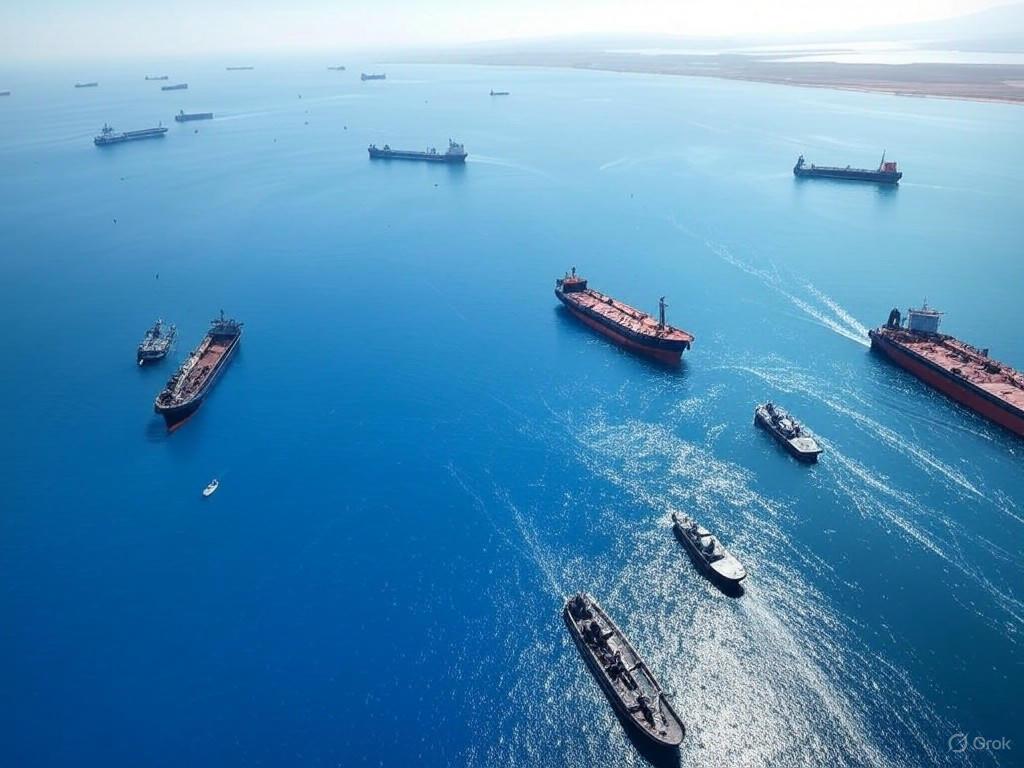The Strait of Hormuz, a narrow yet critical shipping lane, holds a significant position in the global trade of oil and gas, with nearly one-fifth of the world's crude oil passing through its waters daily. Recent tensions between Iran and Israel have reignited discussions around the potential closure of this vital passageway, posing a direct threat to the global energy market [1].
Iran, amidst its ongoing conflict with Israel, has reiterated threats to block the Strait, which could escalate geopolitical tensions significantly. This threat poses substantial challenges not only to regional stability but to global maritime navigation as well [2]. Currently, while the flow of shipping continues through the Strait, maritime companies are increasingly concerned about potential disruptions due to the heightened military activity in the region. A blockade could drastically impact global oil prices, as no alternative sea routes exist for exporting the Gulf's oil and gas—leaving countries heavily reliant on these energy supplies, such as India, particularly vulnerable.
Countries like Saudi Arabia, the UAE, and Iraq heavily depend on the Strait for their oil exports. Any disruption could significantly impact their economies, and by extension, global markets. While some nations have invested in pipelines to bypass this chokepoint, these efforts are far from a complete solution, highlighting the strategic importance of the Strait of Hormuz [3].
The legal implications of closing the Strait are just as complex. While international maritime law does provide for certain rights of passage, any closure could lead to disputes around the legitimacy of these rights, potentially impacting shipping contracts and legal liabilities. The shipping industry must prepare for these scenarios by considering alternative routes and ensuring they remain compliant with international regulations, should the Strait become impassable [4].
The strait's strategic importance cannot be overstated. Not only does it facilitate the transport of energy, but it is also a critical juncture for global trade routes. The potential closure of the Strait of Hormuz thus serves as a stark reminder of how fragile our interconnected world remains, requiring a collaborative international approach to ensure stability and open navigation for all maritime players.
References
1. Could Iran Carry Out Its Threat To Shut Down The Strait Of Hormuz?
2. Iran-Israel Conflict and the Strait of Hormuz: Charterparty Implications
3. Threatened Closure of the Straits of Hormuz: Legal Considerations for Shipping







